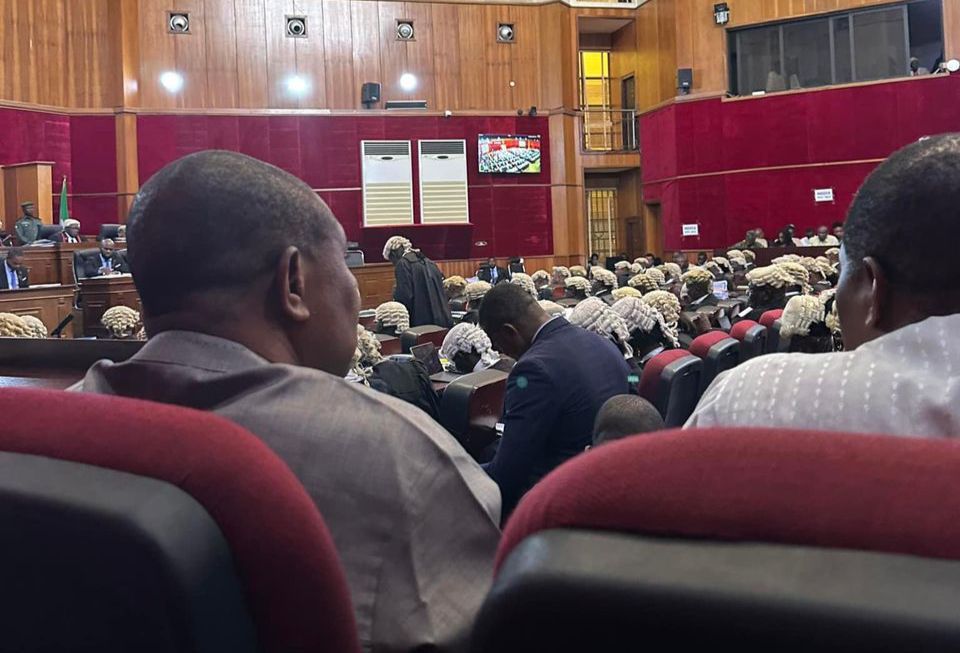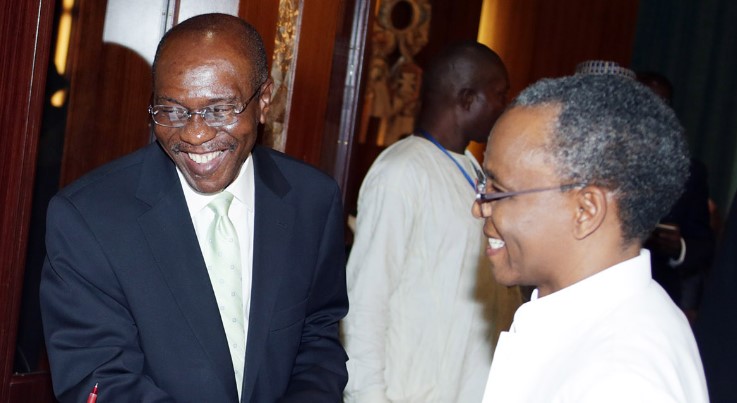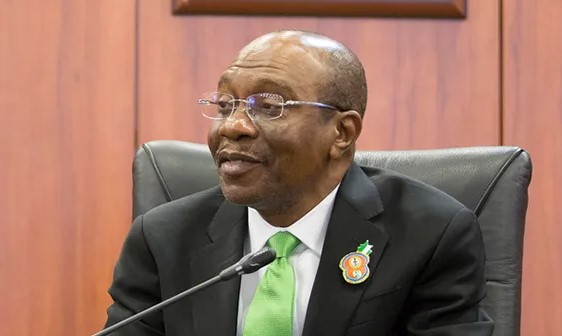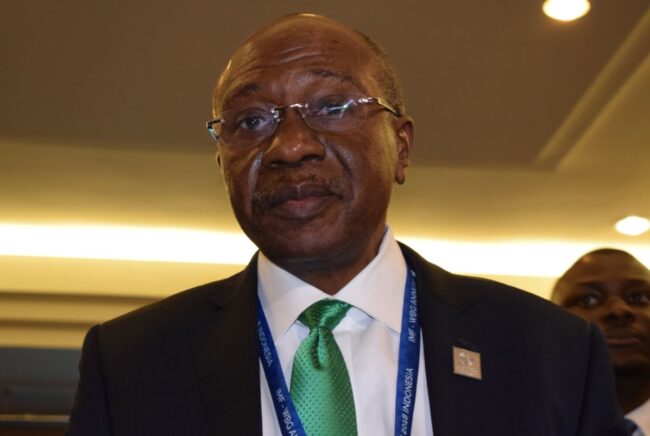On Tuesday, June 6, 2023, the Senate concurred with the House of Reps in taking the extremely backsliding step of passing the Bill for the Establishment of Police Pension Board. Senate President Ahmad Lawan would later boast that President Muhammadu Buhari signed more than 100 bills in four years. He waved that in our face as if it was a contender for Guinness World Record. That usually happens when you take quantity for quality and do not understand the harmful impact of some of your actions on national economic health. By exempting the police from the contributory pension scheme (CPS), the lawmakers have continued in the path of taking us to the next level of fiscal crisis.
It did not start with the Police Pension Board. A few hours to Buhari’s departure from the Presidential Villa, he had signed one of Lawan’s “100 bills” — the National Assembly Service Pensions Board (Establishment) Bill — into law. The law also exempts the employees of the National Assembly from the contributory pension scheme. Essentially, the National Assembly has kick-started the death of the revolutionary pension reform launched by President Olusegun Obasanjo in 2004. If we stand by and fold our arms, the outcome will be more devastating than the pension crisis that Nigerian retirees lived with for decades before the reform by Obasanjo. We are heading for the abyss.
That Nigeria has a serious leadership problem is known all over the world, but it seems we are moving from one low to another in many aspects. At least, if you cannot improve upon an idea, don’t destroy it. If you cannot make pension reform better, don’t make it worse. When Nigeria ran the defined benefit scheme (DBS) — which placed the entire pension responsibility on the government — it worked until we ran into a prolonged revenue crisis that meant budgets could no longer be funded. Retirees saw hell before their death. The introduction of the contributory system spread the burden of pension across board and ended the era of waiting for insufficient budgetary releases.
The amazing thing about Nigeria, for me, is how we try to fix what is not broken. When public pensions were the sole responsibility of the government, we were left in arrears of about N2.5 trillion as at 2004, by some estimates. Retired public servants were frustrated. Some regretted ever serving their country. You would not blame them. The truth, however, was that Nigeria had a revenue problem and it always so happened that pension payment was never a main concern. With a revenue crisis, some items would always fall off the priority list. Unfortunately, pension was often one of such items for us. The liabilities predictably accumulated and the retirees were dehumanised.
Advertisement
With the 2004 pension reform, however, the story has changed. Both the employee and the employer are required, under the CPS, to save towards pension. The savings are invested and they yield decent returns. In essence, pension is now reliant on actual savings and payment of retirement benefits is no longer at the mercy of budgets. Only the retirees coming from under the old defined benefit system are still tied to budgetary provisions, but there is a sunset clause which will kick in with the payment of the last employee on that scheme. A transition phase, managed by the Pension Transitional Arrangement Directorate (PTAD), was put in place to cater for this category of retirees.
What has happened over the last two decades, therefore, is that the pension industry has moved from negative to positive. Pension assets are now well over N15 trillion. The industry has become a major subsector of the economy, funding public infrastructural projects via government securities, and this is to say nothing about the number of fund administrators, custodians and employees that now operate there, or the impact of the regular payments of different benefits to millions of contributors. We are enjoying stability and predictability under the contributory scheme, although retirees under the old defined scheme cannot say the same thing because of the revenue crisis.
It is fair to say that the harm to the pension reform did not start under Buhari. The first major misstep was excluding the armed forces and the intelligence agencies when the Pension Reform Act, 2004, was re-enacted in 2014. The excuse for the exclusion was that because of the nature of their job, their identities needed to be protected. This makes perfect sense. You cannot have the sensitive information of the operatives of the National Intelligence Agency (NIA) and the Department of State Services (DSS) stored with a private Pension Fund Administrator (PFA). The best way out was to allow them to have their own PFAs and remain under CPC but they were returned to the defined scheme.
Advertisement
This suggested that the issue was not just about protecting the identities of the operatives but principally to revive the troubled but “juicier” old scheme. The CPS is seen as yielding low returns (which could be true but I will come to this shortly). The defined scheme does not require contributions from the employees, most of whom will retire with full benefits. That, in my opinion, has led to the frenzied campaign to exit the contributory scheme. With the exclusion of the military and intelligence agencies granted in principle by Jonathan even before the PRA 2004 was re-enacted in 2014, the police force too began to agitate for exit, claiming to also have “special circumstances”.
As a form of compromise, Jonathan approved that the police should have their own PFA but still operating the contributory scheme — which was what he should have done for the military and intelligence agencies in the first place. The police agitation did not stop. The next move was that they came out clearly saying they must exit the contributory scheme and return to the defined system. All kinds of bills were sponsored thereafter, but they all failed because the case was weak. In July 2012, Senator Anyim Pius Anyim, who was then the secretary to the government of the federation (SGF), had to write to Mr MD Abubakar, then inspector general of police (IGP), to perish the thought.
Mr Boss Mustapha, who has just left as the SGF, also wrote to the current IGP, Mr Usman Baba, in July 2022 when the latest round of lobbying started, maintaining that police would continue under the CPS. He reminded Baba that the White Paper on the report of the Presidential Committee on Restructuring and Rationalization of Federal Government Parastatals, Commissions and Agencies (the Oronsaye Committee) had barred Federal Government retirees from opting out of the CPS. Nonetheless, the lobbying intensified at the National Assembly, culminating in the passage of the Police Pension Board Bill on June 6. The House of Reps had quietly passed it before the Senate.
Under Buhari, the retired heads of the service and permanent secretaries had also, through presidential fiat, opted out of the CPS. Mr Abubakar Malami, as attorney-general, countered a previous legal advice from his office which had said an exemption was illegal. Anybody familiar with government workings knows how easy it is to get the legal advice that would favour you. It is one of the several malaises injuring Nigeria and pushing us into endless judicial liabilities all over the world. But I digress. Common sense dictates that we should not disrupt a system that is yielding so many positive results, but if we really had common sense, Nigeria would not be like this in the first place.
Advertisement
The argument of the police, and other agencies who are trying to exit or have exited the contributory scheme, is that pension accumulation is low under the CPS. They say what they get as lump sum payment when they retire is not juicy enough and the subsequent annuity or programmed withdrawals are pittance. Also, they would rather not contribute one kobo towards their own pension. Rather, the employer should take full responsibility. Ironically, I have no argument against this. I myself would like to get a good pension when I retire. That is rational choice. Why should any normal human being prefer N100,000 to N150,000 except “village people” are on her case?
However, the law already takes care of all these concerns and complaints. Employers are allowed to contribute 100 percent on behalf of their employees. Also, employers are not restricted on how much they can pay as “lump sum” for gratuity when their employees retire. It is an open cheque. The National Pension Commission (PenCom), which regulates the pension industry, has said this a million times. Retirees can get lump sums and active workers can get some benefits too. So, what problem is the National Assembly trying to solve? Approving all these exits and piling up more liabilities on a government with already strained finances and a fiscal blackhole is not smart, anyway we look at it.
If we were a country where common sense had any impact on policy making, someone in the National Assembly would have asked: how much will this new bill add to public expenditure? Where will the money come from? Nigeria currently has a debt of N77 trillion. We are using almost all our revenue to service debts and this is likely to get worse down the line. The last thing is to add to the debts without thinking of the revenue. Yet, we are creating new agencies every day and making new laws that will worsen things. Where the money will come from is nobody’s business. We are never tired of creating problems for the present and future generations. That is how we are wired.
My conclusion is that if the police and National Assembly staff, or other public servants, want improved pensions, there is no need to pull out of the CPS. The law allows their employers to scale up their own contributions and to also provide sizeable gratuity as lump sum payments. This will still be cheaper on the public treasury. But when public agencies know that exiting the CPS is easy if they can play the right game with the lawmakers, it is just a matter of time for them to sponsor bills to be exempted too. I, therefore, appeal to President Bola Ahmed Tinubu to work out a compromise in the interest of all stakeholders. This is one of the biggest and most consequential reforms in the last 24 years. We must protect it. Undermining pension reform will hurt everyone: if not now, then later.
Advertisement
AND FOUR OTHER THINGS…
JUNE 12 MEMORIES
Where were you on June 12, 1993? I was in Ogbomoso for my NYSC. Actually, I was spending the weekend with my cousins in nearby Ilorin. I could not vote in the presidential poll, which 30th anniversary is tomorrow, since I was registered in Lagos. I initially supported Alhaji Bashir Tofa, candidate of the National Republican Convention (NRC), because the Social Democratic Party (SDP) fielded a Muslim-Muslim ticket. After watching his TV debate with Bashorun MKO Abiola, the SDP candidate, I felt like an idiot. The gap was clear, sentiments apart. I switched my support to Abiola instantly. My friend, Mallam Lanre Issa-Onilu, made fun of me. Abiola won. Election was annulled. And Nigeria went into a crippling six-year crisis full of sorrow, tears and blood. Reminiscences.
Advertisement
REMOVAL PALAVER
The removal of petrol subsidy by President Bola Tinubu appears to be fait accompli, at least judging by the way the unions have reacted so far. They have shelved proposed strikes and seem to be in a mood for jaw jaw. I’m aware there are those opposing the policy purely for political reasons, but it seems the arguments for and against the removal of the subsidy have become so familiar that they have become jaded. We’ve been saying the same things for 40 years, so there is hardly anything new to say. The major difference today is that we just cannot afford the bill. We have a debt of N77 trillion. If we were awash with money, we could debate whether or not to subsidise petrol. Simple.
Advertisement
NORTHERN SWEEPSTAKES
Left to some northern politicians, the next senate president and speaker will be Muslims and northerners. That means the top five in the nation’s hierarchy will be an all-Muslim affair. I do not know how some politicians think, but the last thing on their minds appears to be national cohesion and promotion of diversity in our multi-cultural society. They care about personal or group benefits above the overall peace and unity that we badly need in Nigeria. As far as they are concerned, Nigeria can go to blazes — as long they can achieve their personal goals and ambitions. Sadly, if trouble starts, we will all suffer the consequences as we have seen in the last eight years. Selfish.
Advertisement
EMEFIELE’S EXIT
I had just finished writing my article for the week when news broke that President Bola Ahmed Tinubu had suspended Mr Godwin Emefiele as the CBN governor. Let’s be honest: it was always going to happen. It was just a matter of when. Minus the political differences between Tinubu and Emefiele, every new president would always want a new CBN governor because of the need to align ideas. There is still a debate on if a president should be able to suspend a CBN governor since the bank is supposed to be politically insulated. I won’t be surprised if there are fresh legal challenges after Mallam Sanusi Lamido Sanusi abandoned the case over his suspension in 2014. Watching.







